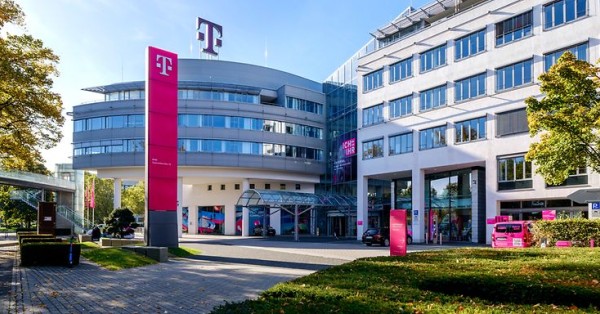South Korean mobile carrier LG Uplus Corp. has officially launched its generative artificial intelligence model, ixi-GEN. This move positions LG Uplus alongside competitors KT Corp. and SK Telecom in the burgeoning business-to-business (B2B) generative AI market.
ixi-GEN’s Advanced Technology: Small Language Model for Telecom
ixi-GEN is a smaller large language model (sLLM) trained on LG Uplus’ communication and platform data. This training leverages the hyperscale multimodal AI Exaone, developed by LG AI Research under the LG Group. Unlike general large language models (LLMs) like OpenAI’s ChatGPT, which operate with hundreds of billions to trillions of parameters, an sLLM like ixi-GEN has significantly fewer parameters. This allows for faster fine-tuning and better performance in specific tasks or industries.
High Security and Clean Data: Features of LG Uplus’ ixi-GEN
One of the standout features of ixi-GEN is its high security. It can be installed on local servers rather than relying on the cloud, reducing potential security risks. Additionally, ixi-GEN is trained on clean data provided by Exaone, which minimizes the likelihood of copyright infringement issues.
ixi-GEN Integration: Enhancing Telecom Services at LG Uplus
LG Uplus plans to integrate ixi-GEN into eight of its services, including chat agents and mobile shop advisor services, by the end of this year. The telecom-specific AI model allows for rapid application in telecommunications services, enhancing customer interaction and service efficiency.
ixi Solution Platform: Democratizing AI for Practical Use
Alongside the ixi-GEN AI model, LG Uplus has introduced the ixi Solution platform. This AI development platform is designed to make AI accessible to ordinary users, enabling practical applications in the real world.
LG Uplus Teams Up with Meta: Bringing AI ixi to Instagram
In an exciting development, LG Uplus Corp. is set to integrate its artificial intelligence, ixi, with Instagram later this year. This collaboration with Meta will provide Instagram users with a more accessible and interactive AI experience, enhancing customer engagement through social media. When users send messages to LG Uplus’ Instagram account, the AI ixi will respond, and plans are underway to introduce ixi to Reels for creating short-form content. This initiative will allow ixi to automatically classify key frames from videos and assist in producing optimized vertical videos quickly and easily, using TV materials for content creation.
AI Wallpaper: LG Uplus Expands AI Applications
LG Uplus recently unveiled its latest AI service, AI Wallpaper, which generates unique smartphone wallpapers based on user prompts. This service helps the company expand its AI capabilities and provide diverse, real-life AI applications for its customers. During an online press conference, LG Uplus discussed these advancements, emphasizing the integration of AI across various marketing processes, from customer analysis to personalized communication.
South Korea’s Generative AI Competition: LG Uplus Joins the Race
The launch of ixi-GEN signifies a heated generative AI race among South Korea’s top three mobile carriers. Last year, KT unveiled its generative AI service, Mi, targeting corporate clients. SK Telecom is also set to launch its LLM specifically tailored for telecom companies, developed in collaboration with global partners like SoftBank, Deutsche Telekom, Singapore Telecommunications, and the UAE’s e&.
South Korea’s Generative AI Competition: LG Uplus Joins the Race
South Korea’s telecom giants are increasingly viewing AI as a vital growth engine to counter the slow growth in the country’s saturated telecom and internet markets. LG Uplus, the smallest of the top three, is accelerating its transition into an AI-focused company. In April, LG Uplus announced plans to increase its investment in AI by 30% to 40% this year and to double its AI talent pool.
ixi Production: Marketing with AI at LG Uplus
The generative AI will be integrated into the company’s “ixi production” project, which leverages AI throughout the marketing process to identify new demands and create customized advertisements. The ixi-powered customer analysis model “Target Insight” can reduce the customer analysis process from three months to just two days. LG Uplus will also use ixi-GEN to enhance this analysis further. The AI Copywriter feature, part of the ixi suite, will automatically generate personalized ads and messages based on these analysis results, significantly improving message targeting and efficiency.
LG Uplus Aims to Lead in Digital Marketing with AI Innovation
By applying these advanced AI technologies, LG Uplus aims to become a leading digital marketing agency industry player. The company is focusing on business-to-business solutions and driving digital transformation through AI innovation. Group Leader Jeong stated, “There are not many companies that can try various things with their own technology,” and added, “I hope that other brands will have the opportunity to understand customer emotions and communicate more deeply with Iksi’s marketing solutions.”
ixi-GEN: LG Uplus’ Strategic AI Advancement in Telecom
LG Uplus’ launch of ixi-GEN marks a significant step in the company’s AI transformation journey. By leveraging a smaller large language model tailored for telecommunications, LG Uplus aims to enhance its service offerings and maintain a competitive edge in the rapidly evolving AI landscape.







































